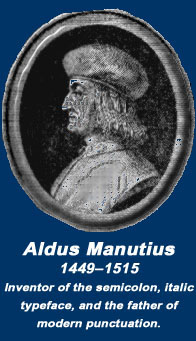


We use italics (characters set in type that slants to the right) and underlining to distinguish certain words from others within the text. These typographical devices mean the same thing; therefore, it would be unusual to use both within the same text and it would certainly be unwise to italicize an underlined word. As word-processors and printers become more sophisticated and their published products more professional looking, italics are accepted by more and more instructors. Still, some instructors insist on underlines (probably because they went to school when italics were either technically difficult or practically unreadable). It is still a good idea to ask your instructor before using italics. (The APA Publication Manual continues to insist on underlining.) In this section, we will use italics only, but they should be considered interchangeable with underlined text.
These rules and suggestions do not apply to newspaper writing, which has its own set of regulations in this matter.
Italics do not include punctuation marks (end marks or parentheses, for instance) next to the words being italicized unless those punctuation marks are meant to be considered as part of what is being italicized: "Have you read Stephen King's Pet Semetary? (The question mark is not italicize here.) Also, do not italicize the apostrophe-s which creates the possessive of a title: "What is the Courant 's position on this issue?" You'll have to watch your word-processor on this, as most word-processors will try to italicize the entire word that you double-click on.
Generally, we italicize the titles of things that can stand by themselves. Thus we differentiate between the titles of novels and journals, say, and the titles of poems, short stories, articles, and episodes (for television shows). The titles of these shorter pieces would be surrounded with double quotation marks.
In writing the titles of newspapers, do not italicize the word the, even when it is part of the title (the New York Times), and do not italicize the name of the city in which the newspaper is published unless that name is part of the title: the Hartford Courant, but the London Times.
Other titles that we would italicize include the following:
We do not italicize the titles of long sacred works: the Bible, the Koran. Nor do we italicize the titles of books of the Bible: Genesis, Revelation, 1 Corinthians.
When an exclamation mark or question mark is part of a title, make sure that that mark is italicized along with the title,
(Do not add an additional period to end such sentences.) If the end mark is not part of the title, but is added to indicate a question or exclamation, do not italicize that mark.
We don't italicize names of vehicles that are brand names: Ford Explorer, Corvette, Nissan Pathfinder, Boeing 747.
Note: It is important not to overdo the use of italics to emphasize words. After a while, it loses its effect and the language starts to sound like something out of a comic book.
Frequently, mimetically produced sounds are also accompanied by exclamation marks.